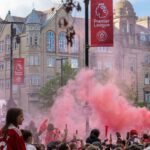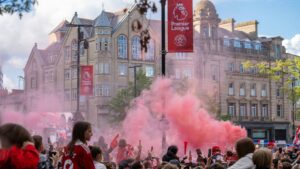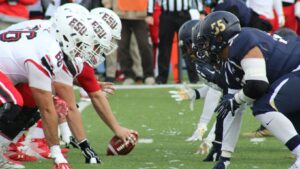After the Canadiens won 4-3 in overtime, a fan on Twitter asked what Puck’s dark monologue meant. This Stanley Cup Finals has been full of twists and turns so far as the Boston Bruins have fought to gain their first championship title since 1972. In other words, this game was for all the marbles – literally! But no matter who wins or loses there are still some things that fans can learn from both games in terms of character development.
The “if we shadows have offended pdf” is a monologue from the play “A Midsummer Night’s Dream” by William Shakespeare. In this monologue, Puck speaks about how even though he and his friends are mere shadows, they still hold power over humans.
Puck’s soliloquy begs the audience for forgiveness if the play offended or harmed them by referring to the play’s fictitious events and characters as shadows (see below), and equating the performance itself to nothing more than a dream; it was all fake and harmless.
Similarly, one can wonder what the point of Puck’s last monologue is.
To apologise for the play’s frivolity and to raise the intriguing possibility that the play (about a dream) is itself a dream.
What is Puck saying in these sentences, too? “If we shadows have offended, consider this: that you have just slept here, while these visions appeared:” What is Puck stating in these lines? If any of the performers insulted you, keep in mind that this was all a dream.
What does puck say in his last speech about this?
The Monologue of Puck Otherwise, the Puck would declare you a liar; thus, good night to you all. If we’re buddies, give me your hands, and Robin will make apologies.
Who’s to say whether we’ve insulted you, shadows?
Puck: If we shadows have offended, consider this: / That you have only slumber’d here / While these sights appeared, and all is well. And this feeble and pointless topic, / No longer yielding but a dream, / Gentles, do not be offended: / If you forgive us, we shall repair. Otherwise, the Puck will be called a liar. If you don’t mind, I’ll take your hands.
Answers to Related Questions
What occurs at the conclusion of Shakespeare’s A Midsummer Night’s Dream?
Bottom and the four lovers depart the woodland thinking it was all a midsummer night’s dream. At the wedding feast of Lysander and Hermia, Demetrius and Helena, and Theseus and Hippolta, the tiresome play is played. Fairies bestow favors and Puck delivers a soliloquy at the conclusion of the play.
What does the phrase “never anything” signify to Theseus?
What does Theseus mean when he says, “For nothing can be wrong when simplicity and obligation offer it?” He is implying that the performers are just giving it their all, and that they should enjoy the performance for what it is. And, if the actors make a mistake, they just have to recognize that they are nice people trying their best.
What is Oberon’s plan for obtaining the young lad?
Oberon and Titania each have their own theories about him and his origins. Oberon states that the small child was kidnapped from an Indian monarch (making the Changeling Boy a prince) and that Titania has adopted him.
Why are Theseus, Hippolyta, and the others out so early in the morning in the woods?
Because they are with a hunting group, Theseus, Hippolyta, Egeus, and the others are out in the woods early in the morning. In the case of the four young individuals, Theseus decides to override Egeus’ intentions. As a result, during Hippolyta and Theseus’ wedding, all of their couples were able to marry their true loves.
In A Midsummer Night’s Dream, what does the puck represent?
Puck is a mischievous sprite who serves as Oberon’s servant and jester in “A Midsummer Night’s Dream.” Puck is one of the most endearing characters in the play, and he sticks out among the other fairies that float through it. Puck, despite his “hobgoblin” moniker, is a jovial and quick-witted character.
What does puck resemble?
Puck is often shown as a youthful lad, young man, or adolescent without a beard. He lacks wings and is dressed in materials that seem to be from the jungle. Oberon’s younger, wilder, more reckless servant, Puck, is shown as a boy.
How would you characterize Puck’s personality?
List of characters. Puck – Oberon’s jester, sometimes known as Robin Goodfellow, is a mischievous fairy who enjoys playing pranks on mankind. The play’s most prominent example of the contrast theme is Titania’s fleeting, potion-induced love for Nick Bottom, whose head Puck has changed into that of an ass.
Why is it that Theseus dismisses the tales?
Why does Theseus ignore the four young people’s stories? It’s a sad comedy that’s full of irony and completely unique. The performance is being performed by Athenian workmen, and he believes it will be amusing to see. They’re lighthearted remarks that contribute to the performers’ and play’s hilarity.
What is Puck’s epilogue’s significance?
An epilogue is a speech that serves as a kind of PS (postscript) to the main body of a play. It may be used to bring events to a close or to address topics that the audience may still be confused about.
Who said these mortals were fools?
Shakespeare, William
Puck has a total of how many lines?
Puck’s speeches (lines) in “A Midsummer Night’s Dream” total 33.
At the conclusion of the play, who does puck ask the audience?
Puck’s soliloquy begs the audience for forgiveness if the play offended or harmed them by referring to the play’s fictitious events and characters as shadows (see below), and equating the performance itself to nothing more than a dream; it was all fake and harmless.
What is Puck doing at the end of the night as he recounts the events? For what is he apologizing?
What is Puck doing at the conclusion of the night as he tells it? What does he apologise for? Puck is making an apology to the crowd. Puck expresses regret for disturbing the play’s proceedings.
If we’re pals, who says you had to offer me your hands?
Shakespeare, William
Who’s to say I’m the night’s joyful wanderer?
Act 2, Scene 1 of A Midsummer Night’s Dream, Puck’s speech
I am the night’s joyful traveller. Pour the ale on her withered dewlap. There was never a dull moment there.
What does it mean to now scape the serpent’s tongue?
“To’scape the serpent’s tongue” implies “to escape being booed and hissed at;” in other words, to give a product that satisfies, or to make apologies – to heal the connection between troupe and audience strained by a bad performance.
Who knows whether the shadows have upset anybody. But don’t you think everything and everything is fixed now that you’ve only slept here while we shadows appeared?
Puck: If we shadows have upset you, just think of this, and everything will be OK. That you have just slept here while these sights appeared, and this weak and useless topic has yielded nothing more than a dream. Do not be alarmed, gentlemen.












